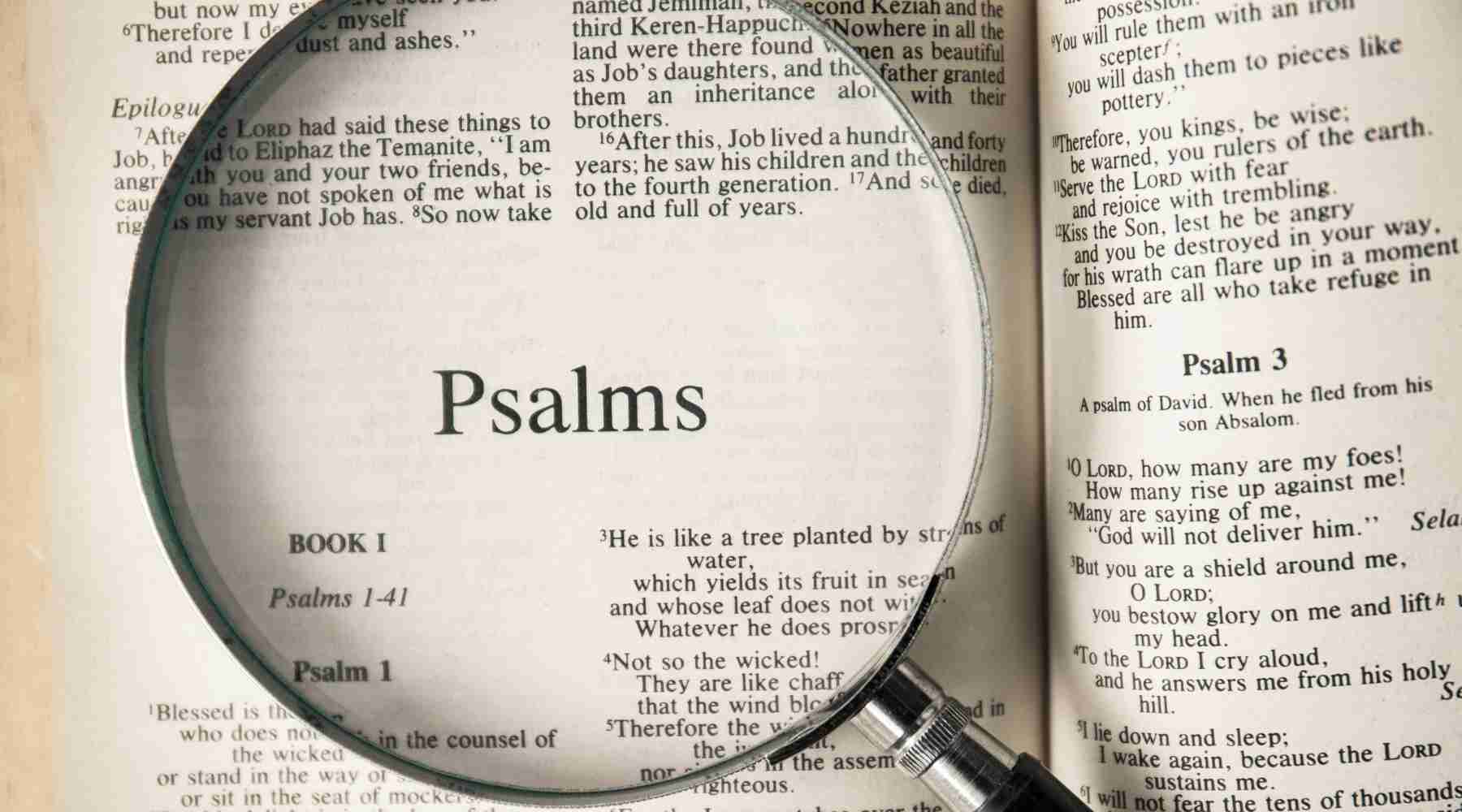
Struggling With Faith
Struggling with faith is a deeply personal and often complex experience that many people face at various points in their lives. It can be a time of profound questioning, where long-held beliefs are challenged, and the very foundations of one's spiritual life are brought into question. This struggle can arise from numerous sources, such as personal tragedies, intellectual doubts, or a perceived lack of connection with a higher power. For some, it might be triggered by the loss of a loved one, an unexpected life change, or even a growing awareness of the world's suffering and injustice. Whatever the cause, the journey through doubt and uncertainty is a common aspect of the spiritual path.
One significant factor that contributes to struggling with faith is the conflict between religious teachings and personal experiences. Many religious traditions offer explanations and assurances about the nature of the world, the presence of a higher power, and the meaning of life. However, when personal experiences contradict these teachings, it can lead to a crisis of faith. For instance, a person raised to believe in a benevolent and omnipotent deity might struggle to reconcile this belief with the existence of suffering and evil in the world. This dissonance can create a sense of betrayal and confusion, making it difficult to maintain faith.
Another aspect of struggling with faith is the intellectual challenge posed by modern scientific and philosophical understandings. As people become more educated and exposed to diverse perspectives, they may find that their religious beliefs are increasingly difficult to defend rationally. The theory of evolution, for instance, can challenge traditional creation narratives, while advances in cosmology and physics might make the idea of a supernatural creator seem less necessary. Philosophical questions about the nature of morality, free will, and consciousness can also provoke deep reflection and doubt. For many, these intellectual challenges necessitate a re-evaluation of their faith.
The role of community in one's faith journey cannot be overstated. Religious communities provide support, guidance, and a sense of belonging. However, they can also be a source of struggle when one's beliefs begin to diverge from the community's teachings. Fear of judgment, ostracization, or even excommunication can prevent individuals from expressing their doubts openly. This internal conflict between the desire for authenticity and the fear of losing one's community can be a significant source of stress and anxiety. For some, it might lead to a complete break from their religious community, while for others, it might result in a more private and solitary faith journey.
Personal morality and ethical dilemmas often play a crucial role in struggling with faith. Many religions have strict moral codes and guidelines for behavior, which can sometimes clash with personal values or societal norms. When individuals find themselves at odds with these moral teachings, they may begin to question the validity of the entire belief system. For example, someone who grows up in a tradition that condemns certain behaviors or identities might struggle deeply if they or someone they love identifies with those condemned aspects. This moral conflict can lead to a painful reassessment of faith and a search for a more inclusive and compassionate understanding of spirituality.
Emotional and psychological factors are also deeply intertwined with the struggle for faith. Mental health issues, such as depression and anxiety, can exacerbate feelings of spiritual emptiness and doubt. During these times, the sense of God's presence may feel distant or entirely absent, leading to what some describe as a "dark night of the soul." This term, coined by the mystic Saint John of the Cross, captures the profound sense of spiritual desolation that can accompany severe mental and emotional distress. Navigating these dark periods requires immense inner strength and, often, external support from mental health professionals, friends, and family.
The process of deconstruction is a common phase in struggling with faith. Deconstruction involves critically examining and dismantling previously held beliefs, often leading to a period of significant doubt and uncertainty. This process can be triggered by new information, personal experiences, or a desire for greater authenticity in one's spiritual life. Deconstruction can be both painful and liberating, as it involves letting go of comforting certainties and confronting uncomfortable truths. However, it also opens the possibility for reconstruction, where individuals build a new, more nuanced understanding of faith that aligns with their experiences and values.
Struggling with faith can also be a catalyst for profound personal growth and transformation. While the journey through doubt is often fraught with pain and confusion, it can lead to a deeper and more mature spirituality. As individuals confront their doubts and questions, they may develop a more resilient faith that can withstand the complexities and challenges of life. This transformed faith is often marked by greater humility, compassion, and a willingness to embrace mystery and uncertainty. It becomes less about adhering to rigid doctrines and more about cultivating a personal and meaningful relationship with the divine.
The struggle with faith often involves a reevaluation of one's understanding of God or the divine. Traditional images of an all-powerful, all-knowing deity may no longer resonate with those who have experienced profound suffering or injustice. Instead, individuals might find solace in more nuanced and diverse conceptions of the divine. Some may turn to pantheism, seeing the divine in all aspects of nature and existence, while others might embrace a more personal and relational understanding of God. This reevaluation can lead to a richer and more expansive spiritual life, where the divine is encountered in unexpected and everyday moments.
Engaging with different religious and spiritual traditions can provide new perspectives and insights during times of struggling with faith. Exposure to diverse beliefs and practices can broaden one's understanding of spirituality and offer new ways of connecting with the divine. For example, someone raised in a Christian tradition might find solace in the mindfulness practices of Buddhism or the mystical traditions of Sufism. These encounters can enrich one's spiritual life and provide new tools for navigating doubt and uncertainty. They can also foster a greater appreciation for the commonalities and differences among various faith traditions.
The role of doubt in faith is often misunderstood. Many religious traditions emphasize certainty and unwavering belief, viewing doubt as a weakness or a lack of faith. However, doubt can be an essential component of a vibrant and dynamic spiritual life. It prompts individuals to question, explore, and deepen their understanding of their beliefs. Rather than being seen as the opposite of faith, doubt can be viewed as a companion to faith, driving the continuous search for truth and meaning. Embracing doubt allows for a more honest and authentic spiritual journey, where questions are valued as much as answers.
The struggle with faith is not always about losing belief but can also involve finding new ways to express and live out one's beliefs. For some, this might mean moving away from organized religion and developing a more personal and individualized spirituality. For others, it could involve seeking out new religious communities that align more closely with their evolving values and beliefs. This search for authenticity can lead to significant changes in how one practices their faith, such as adopting new rituals, forms of prayer, or ways of engaging with sacred texts. It is a process of continuous evolution and growth.
Relationships with family and friends can significantly impact one's struggle with faith. For those raised in religious households, expressing doubts or changing beliefs can strain familial relationships and create feelings of isolation. Conversely, finding supportive and understanding friends and family members can provide crucial support during these times of uncertainty. Open and respectful dialogue about faith can help bridge differences and foster deeper connections. It is essential to approach these conversations with empathy and a willingness to listen, recognizing that faith is a deeply personal and often sensitive topic.
Struggling with faith can lead to a reevaluation of one's purpose and meaning in life. Many religious traditions provide a framework for understanding one's place in the world and one's ultimate purpose. When these frameworks are called into question, individuals may find themselves grappling with existential questions about the nature of life and their role within it. This period of questioning can be disorienting but also profoundly liberating, as it allows for the exploration of new sources of meaning and fulfillment. Whether through new spiritual practices, creative endeavors, or service to others, finding purpose outside of traditional religious structures can be a transformative experience.
During these challenging times, it's essential to remember that you're not alone. Many Christians face similar doubts and questions. One way to feel connected and reminded of your faith is through everyday items like Christian T-Shirts. Wearing a shirt that reflects your beliefs can provide comfort and a sense of belonging, reminding you of the community and the larger purpose you are part of. These Christian T-shirts are not just clothing; they are a statement of faith and a subtle but powerful way to keep God's presence close to your heart.
God Clothing, such as Christian T-Shirts, can serve as a daily reminder of your commitment to your faith. Each time you wear a shirt with a scripture verse or a faith-based message, you are silently affirming your beliefs. It may seem like a small act, but these visual affirmations can have a profound impact on your mindset, especially during periods of doubt. They can serve as a conversation starter, encouraging discussions about faith that can provide new perspectives and insights.
Moreover, embracing God Shirts can help foster a sense of community. When you wear clothing that speaks of your faith, you may find others who share your beliefs and struggles. These connections can be incredibly supportive, offering a network of people who understand and empathize with your journey. Building such relationships can be a source of strength and encouragement, helping you to navigate through difficult times.
Ultimately, struggling with faith is a testament to the dynamic and evolving nature of the human spirit. It reflects a deep commitment to seeking truth and authenticity, even in the face of uncertainty and doubt. This journey is not about finding definitive answers but about embracing the questions and allowing them to shape and deepen one's spiritual life. It is a process of continuous discovery, where each step brings new insights and a greater understanding of oneself and the divine. Through the struggle, individuals can emerge with a more profound and resilient faith, capable of sustaining them through life's many challenges.



Leave a comment
This site is protected by hCaptcha and the hCaptcha Privacy Policy and Terms of Service apply.